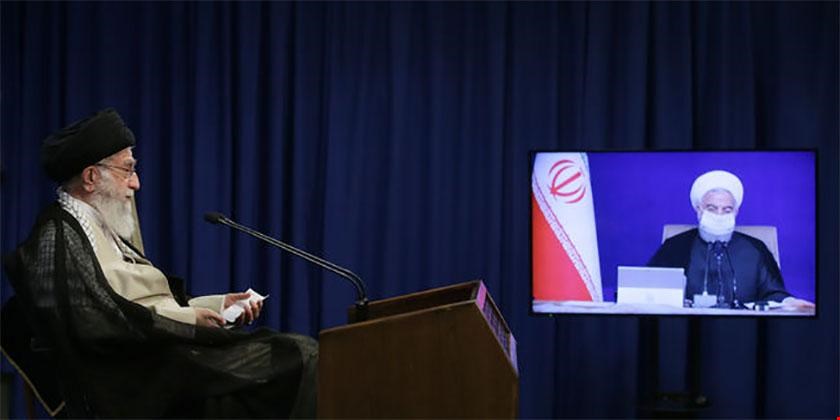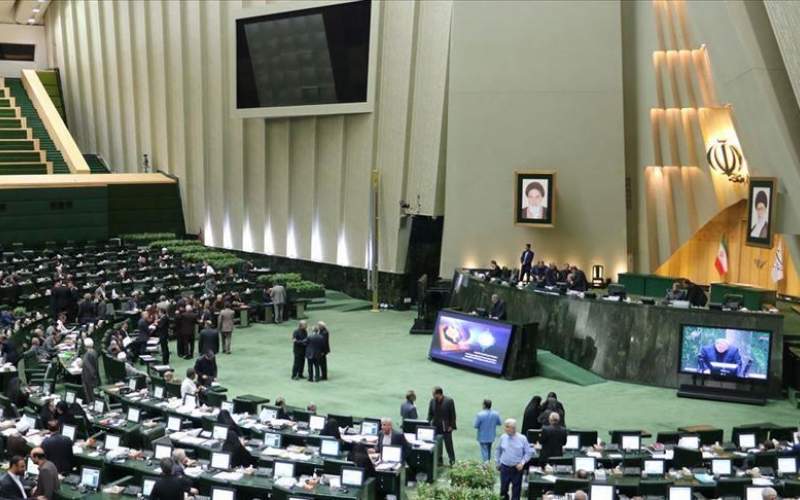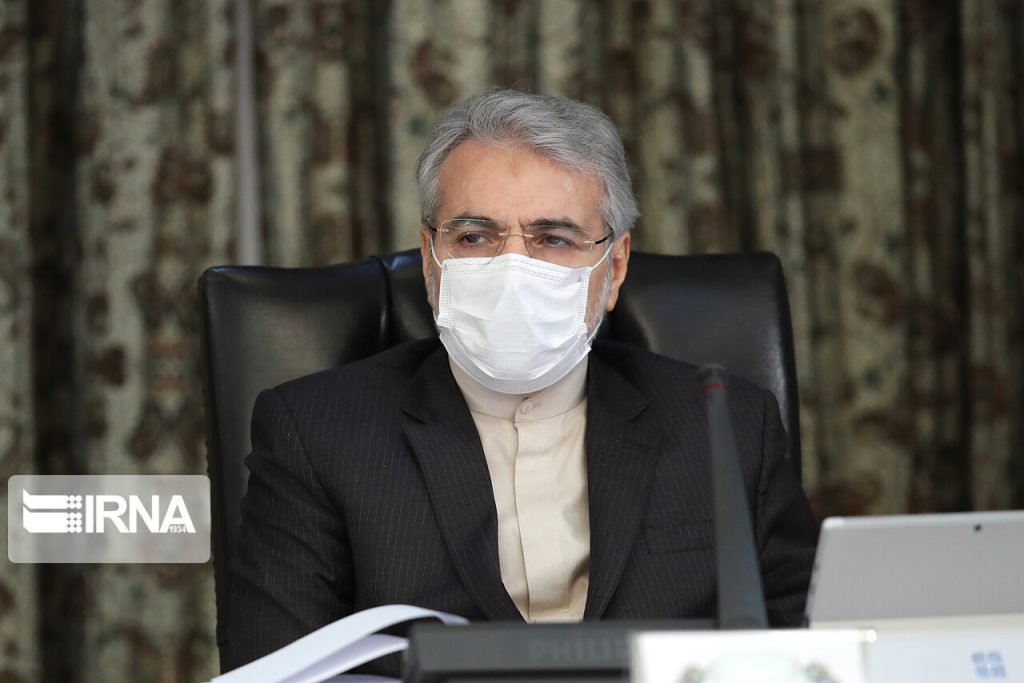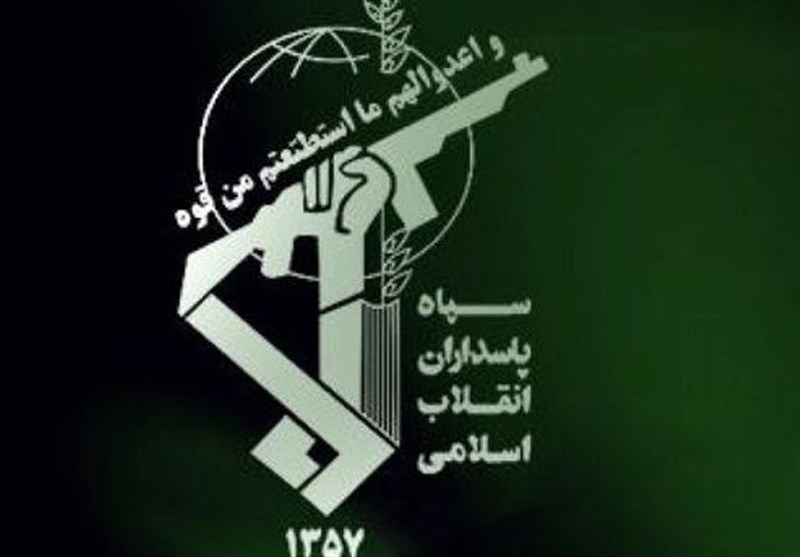
Problem of Migration and Slum Dwelling
The editorial of Mardomsalari focuses on the issue of migration to big cities in the hope of finding a better job and to improve living standards, which results in people living in slums with many serious problems.
Migration to big cities and living in slums has become one of the serious problems in Iran today and has created many economic, social, and cultural problems and abnormalities. Even though the problem has existed for many years and officials have acknowledged it, it has not been resolved so far.
According to the General Census of Population and Housing (2016), 516,922 people have moved from other provinces to Tehran between 2011-2016. During the same period, 350,632 people moved from Tehran to other provinces. As the statistics show, the number of people who entered Tehran is greater than the number of people who left the the city during this period.
Such migrations can be viewed from two perspectives: how come people have migrated from cities and towns to big cities, particularly Tehran? What abnormalities are aggravated by such migrations?
It seems that the main cause of migration to big cities is economic shortcomings in small cities. The rate of unemployment in small cities indicates that many people must migrate in the hope that they will find a job and earn a higher income in big cities. The statistics show that western provinces have had higher rates of unemployment which have resulted in workers moving to Tehran. Unfair distribution of opportunities and jobs, as well as widespread unemployment, explains why people have no choice but to migrate to big cities.
Migrants who go to big cities hoping to find better economic conditions have no choice but to live in slums. Although there are no accurate statistics regarding the population of slum dwellers, Tehran’s officials believe that 25 percent to 30 percent of Tehran’s population live in slums. If we take Tehran’s population to be 8.5 million people, it means that more than 2 million people are living in slums around Tehran.
Slum dwelling indicates a lack of housing, as well as inadequate housing. The problems of living in slums include environmental issues, lack of access to clean water, littering, congestion, social problems, collective dissatisfaction and alienation.
Fatah’s Apology From a Different Perspective
Parviz Fatah, head of Mostazafan [Oppressed] Foundation, recently disclosed the names of individuals and institutions that have seized the properties of this foundation without paying rent or who have used them illegally. He later apologized for offending these individuals and institutions. The editorial of Mastaghel argues that a more important issue than Fatah’s disclosure and apology is to know whether these properties were legally and justifiably confiscated during the early days of the revolution and afterwards.
Parviz Fatah who raised the controversial issue of his foundation’s properties being seized on TV, recently issued a statement apologizing for his accusations.
The apology can be seen from different perspectives. Some said it was just to stop sideline stories from gaining ground, while some said Fatah was ordered to apologize. It is not clear what made the head of the Mostazafan Foundation apologize, but the apology itself can be seen from a different perspective.
There are certain questions regarding this foundation’s functioning and the properties that it has confiscated. This is the issue that has been neglected in the aftermath of Fatah’s accusations. What Fatah said and apologized for is not the main issue. It is not important which individuals or institutions have seized the foundation’s properties.
What is of importance is why no one is looking into the root cause of this situation. The “reformists” and “hardliners” have both made use of the properties confiscated by Mostazafan Foundation after the revolution.
Four decades after the revolution, everybody knows that a part of the foundation’s properties was illegally seized and handed over to the country’s officials.
Apart from the controversial accusations made by the head of the Mostazafan Foundation, we must once and for all address the issue of properties confiscated during the early days of the revolution and rectify and apologize for the mistakes that were made then.
Plans, Instead of Making Empty Promises
The editorial of Ebtekar sheds light on the fact that in next presidential election, Iranians are likely to look for plausible, realistic plans to overcome the dire economic situation they are facing, rather than controversial figures with empty promises.
Because of the current dire economic and political conditions, one cannot easily predict the outcome of the upcoming presidential elections in Iran. In general, people are dissatisfied with the economic conditions that have been caused by poor political decision-making, and the 12th government which has only one more year to go hasn’t been able to find any solutions to improve the situation. The “hardliners” who have taken over the Parliament because of a low turnout in the previous election are now gearing up for the presidential election which will be held in 2021.
Nevertheless, political currents, “reformists”, and “hardliners”, do not have any clear plans for the country’s future. They both hope to create emotional waves among the people in the final months leading up to the elections – just as they did in 2005 and 2017.
But perhaps the 2021 presidential elections in Iran can be seen differently from the previous ones. In past decades, promises made by “reformists”, “hardliners”, and the “moderates” led people to the ballot boxes. But eventually the outcomes were not to the satisfaction of the people.
What must be noted is that there is no political platform where parties and political currents can propose their plans and enter the elections; as a result controversial figures that make empty promises are promoted.
Perhaps, we can say that the Iranian people are not looking to controversial figures, because one person or group cannot help the country to overcome the current situation. The country needs to undergo economic, political, and cultural restructuring – this requires a logical plan and expert ideas.
Plausible and realistic plans to manage the country, rather than controversial figures that make empty promises should be emphasized in the next presidential elections.
JCPOA, Snapback Mechanism, and Domestic and Foreign Disagreements
The editorial of Setareh Sobh focuses on how the nuclear deal (JCPOA) helped in defeating the United States in the UN Security Council.
For years the Iranian people have been struggling with economic, social and livelihood issues. Whenever necessary, the people have gone to the ballot boxes to express their wishes. In 2013 and 2017, the majority of people voted for Hassan Rouhani so that he could interact with the world through diplomacy to alleviate tensions, sanctions and keep the country away from war.
To realize this demand, Rouhani’s government negotiated the nuclear deal for 23 months which resulted in the JCPOA and the UN Security Council issuing Resolution 2331, which was a win-win for both sides. As a result, in 2015, 2016 and 2017, due to sanctions being lifted, Iran witnessed positive economic growth and was able to sell oil without any hindrances.
Gradually, however, the JCPOA was rendered pointless due to the actions undertaken by both sides. Conditions in Iran deteriorated before the JCPOA. Interestingly, those in the country who had a significant role in disrupting the JCPOA are now blaming the government and the “reformists” for this situation.
They used to demand Iran’s withdrawal from the JCPOA, but now that the deal has resulted in the defeat of the United States in the UN Security Council, they are now bragging about it. Undoubtedly, without the JCPOA, the United States wouldn’t have been defeated in the UN Security Council.
Now after this US defeat, Iranian “hardliners are threatening that Iran will pull out of the JCPOA. Last week, a number of lawmakers proposed a plan in Parliament to “pull out of the JCPOA, if the Americans activate the snapback mechanism.”
America has asked the UN Security Council to activate this mechanism and reimpose past UN sanctions. In spite of the fact that Russia, China, France, Britain, and Germany have disagreed with this US demand, America will continue its efforts against Iran, as a result of which economic conditions will deteriorate further.
Setareh Sobh

Khamenei’s New Order: Confront iPhone Imports to Iran, and the Purchase of Properties Abroad

Iran’s Supreme Leader Ali Khamenei has ordered the government to confront the import of “luxury American phones [iPhone]” to Iran as well as the “purchase of properties abroad.”
At a video conference with the cabinet, Khamenei said in 2019 that $500 million was spent for importing “this kind of phone for which there is no need.” He added that even though a private company imported the phones, the government should prevent it from now on.
A few hours after Khamenei’s words were published; the remarks in relation to iPhones were censored by his office, not to mention that his tweet in this regard was removed.
Ali Khamenei also pointed to the purchase of properties outside Iran as a “problem,” calling on the government to address this issue.
During the past two years, official statistics from some countries such as Turkey show that the number of Iranians buying properties there has significantly increased even during the coronavirus outbreak.
According to such statistics, Iranians bought 1,864 homes in Turkey during the first three months of this year, ranking first among foreign home buyers in that country.
In another part of his speech, Ali Khamenei ordered the government to turn to the armed forces for manufacturing parts, adding that Iran’s armed forces and Defense Ministry can manufacture “very delicate and intricate parts.”
He was referring to the IRGC and the Defense Ministry’s entry into Iran’s auto industry in recent months.
Defense Minister Amir Hatami announced recently the companies affiliated with his ministry have increased their contracts with the country’s auto-manufacturing industry, investing more than 4,000 billion tomans in it.
In June, Commander of the IRGC’s Aerospace Force Amir Ali Hajizadeh pointed out that his military institution would enter into Iran’s auto industry by setting up a joint committee with the Ministry of Industry, Mine and Trade in order to “convey the IRGC’s experiences and information in research” to auto manufacturers.
Parliament Plans to Limit Social Media

A number of Iranian lawmakers submitted the bill “Reforming Social Messengers” to the Parliament’s presiding board, emphasizing the need to replace foreign social messenger applications with domestic ones.
The bill, signed by 40 Iranian lawmakers, outlines fines and jail sentences for those who offer social messenger applications without legal permits or sell and distribute VPN and anti-filtering software.
In Iran, popular social media platforms like Twitter and Facebook are filtered. However, many Iranian officials have accounts with these social networks. Accounts under the name of Supreme Leader Ali Khamenei are active in different languages through filtered social media platforms.
“Hardliners and lawmakers in the 11th Parliament have called the government’s performance in managing social media in Iran “unbridled” and have asked for “launching and boosting the national database network.”
According to the Parliament’s bill, a supervisory board must be appointed to monitor the internet, and it underlines that all domestic and foreign social messenger applications must act in compliance with Iran’s laws.
According to this bill, accessing user data is not allowed, unless in cases like “crimes against the domestic or international security of the nation, enmity against God, corruption on earth or collaborating in such crimes.”
Experts say that this bill has a security and political dimension.
Despite strong filtering and censoring of the internet in Iran, some “hardliners and security and military officials are unhappy with the unrestricted access to the internet and demand more severe and permanent restrictions.
In December 2019, Iranian President Hassan Rouhani announced that the Iranian supreme leader has issued a directive to boost the national database network, asserting that the government intends to “boost the national database network so much so that people don’t need to go to foreign ones.”
Unprecedented disconnection of internet services during the November protests (2019) in Iran resulted in much criticism toward this national internet project.
Now with the possible ratification of the bill by Parliament to limit internet access, many experts are concerned about restrictions on the internet in Iran increasing.
“We Cannot Even Sell Oil for Food and Medicine,” Says Senior Official

Mohammad Bagher Nobakht, head of Iran’s Budget and Planning Organization, said in a TV program that Iran cannot even sell oil for food and medicine any longer. He said: “If previously Iran was able to sell oil for food – which was a heavy punishment for the country – under the current circumstances we cannot sell oil for food or even medicine.”
Emphasizing that the difference between previous and current sanctions is in the very issue of oil for food, Nobakht continued that currently Iran has to deal with pressures due to the coronavirus outbreak, as a result of which the government’s resources have diminished.
Recently, there was a Reuters report indicating a significant drop in the sale of oil and problems in purchasing food and medicine. In spite of the fact that food and medicine are exempted from sanctions, banks and governments are not willing to transfer or receive money to/from Iran.
In the meantime, recent statistics by Iran’s main partners in Asia and Europe show a significant drop in their trading transactions with Iran during the first seven months of this year.
According to latest report by Eurostat (European Statistical Office), the European Union has exported goods worth 1.89 billion euros to Iran representing a 5.5 percent and 58 percent drop compared to the same period in 2019 and 2018.
Iran’s exports to Europe reached 347 million euros this year, andthe exports in the first half of 2018 reached over 6 billion euros – 17 times more than the same period this year.
Meanwhile, the Iran-Turkey Chamber of Commerce announced that Iran’s oil exports to Turkey have dropped by 99 percent. The level of commercial trade between the two countries has severely decreased. Turkey, despite advertising its tourism industry, is not admitting Iranian citizens.
IRGC Kills 3 Armed Individuals

The Islamic Revolutionary Guard Corps (IRGC) has issued a statement announcing that three armed individuals who planned to enter Iran were killed at the country’s northwestern border.
The statement added that the individuals were linked to the “anti-revolutionary terrorist group affiliated with the Global Arrogance” and intended to enter Iran via its northwestern borders.
According to the IRGC statement, this armed group had entered the Maku borders through Turkey and a large quantity of weapons, equipment and communication instruments were discovered and confiscated from them during the clashes.
In these areas, Kurdistan Free Life Party (PJAK) is engaged in armed activities. The United States has designated this group a terrorist organization; Iran, however, holds that this group is backed by America.
In Iran’s terminology, the “Global Arrogance” refers to the United States.
